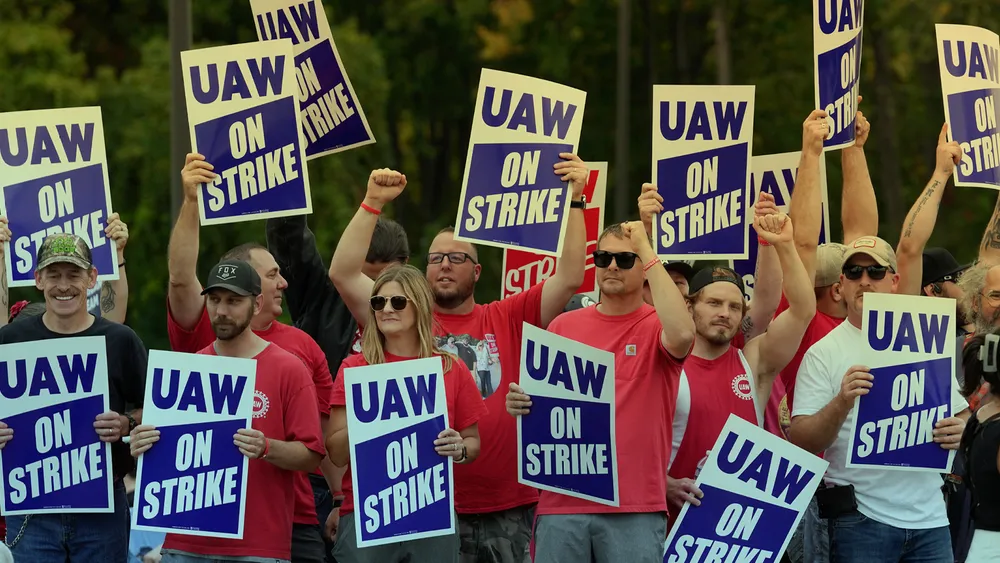
UAW members picket in Michigan. (AP Photo / Paul Sancya)
Good things are happening! Auto workers secure major wins in the electric vehicle transition, while California protects restaurant employees from exploiting themselves. Meanwhile, Vermont goes big on batteries, and Biden tosses out junk fees.
Electric Vehicles Will Be Union Made
General Motors has agreed to place battery manufacturing for electric vehicles under its main agreement with the United Auto Workers (UAW), a major demand in the union’s ongoing strike against the Big Three automakers. UAW President Shawn Fain announced the victory in a video update last week.
The demand to bring electric battery manufacturing into union contracts was a key part of the union’s strike, despite it being legally difficult to accomplish. As automakers move to expand electric vehicle production, a major goal for the Biden administration and an essential part of the fight against climate change, auto workers were at risk of being left out of the transition, since battery plants are overwhelmingly nonunion (despite the significant government subsidies they receive). Corporate executives argued that companies didn’t have enough money to invest in electric vehicle production and meet union demands.
The Lever reported that argument was largely false. Fain publicly endorsed Biden’s plan to increase electric vehicle production while insisting that the transition protect union jobs. At least 100 environmental groups supported UAW’s demand. GM’s concession temporarily paused the strike’s expansion at GM plants. On Wednesday the UAW stopped work at Ford’s Kentucky plant in a major escalation of their stalled negotiations with another major automaker.
By Lucy Dean Stockton
